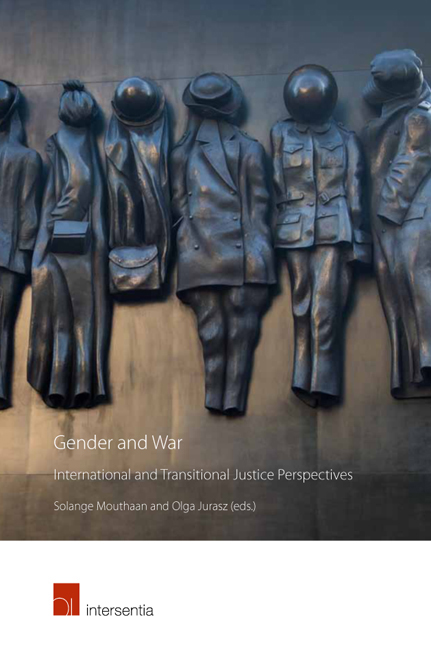Book contents
- Frontmatter
- Contents
- List of Cases
- List of Abbreviations
- List of Contributors
- Introduction
- PART I WOMEN'S INVOLVEMENT IN ARMED CONFLICT
- PART II MEN AND CHILDREN'S EXPERIENCES OF ARMED CONFLICT
- PART III GENDERED EXPERIENCES OF INTERNATIONAL CRIMINAL JUSTICE
- PART IV GENDERED EXPERIENCES OF TRANSITIONAL JUSTICE
- PART V CONCLUSIONS
- About the Editors
Introduction
Published online by Cambridge University Press: 30 March 2019
- Frontmatter
- Contents
- List of Cases
- List of Abbreviations
- List of Contributors
- Introduction
- PART I WOMEN'S INVOLVEMENT IN ARMED CONFLICT
- PART II MEN AND CHILDREN'S EXPERIENCES OF ARMED CONFLICT
- PART III GENDERED EXPERIENCES OF INTERNATIONAL CRIMINAL JUSTICE
- PART IV GENDERED EXPERIENCES OF TRANSITIONAL JUSTICE
- PART V CONCLUSIONS
- About the Editors
Summary
Gender is an important factor shaping the reality and lived experiences of men and women in armed conflicts. ‘New wars’ in which violence is directed predominantly towards civilians, have a significant gender dimension. In particular, the use of sexual violence in modern armed conflicts evidences the strategic nature of gendered violence which is commonly deployed to achieve not only political control but also to terrorise or expel members of the opposing group – be it ethnic, religious or national. Furthermore, as the experience of the past three decades of new wars demonstrates, gender retains its significance in the aftermath of conflict, during the time of transition from ‘conflict’ to ‘peace’. Although it is increasingly difficult to draw a defining line between phases of modern conflict, it can be observed that transitional justice processes are highly gendered and oft en lead to exacerbation of gender-based violence and a return to unequal gender relations existing prior to the conflict. Frequently, the ‘postwar’ political reality and the new legal order do not prioritise the need to address the structural discrimination and inequalities nor the gendered consequences of conflict. This oft en leads to the creation of a ‘post-war’ economy where continued violence and gendered abuse are common features, for example in cases of human trafficking from ‘post-conflict'states. Despite the pervasiveness of gendered violence in new wars and in transitional contexts, international law has been crucial in bringing about meaningful change. This book aims to analyse the progress made in relation to addressing gendered impacts of new wars through the lens of the international criminal justice system and transitional justice processes. While these two perspectives represent merely a particular section of the international legal regime, they are representative of the major changes that have taken place in these fields in recent years.
Traditionally, international law has given little recognition to the gendered effects of war and focused largely on prohibiting conflict-related sexual violence (CRSV) through international humanitarian law treaties in the aftermath of World War II.
- Type
- Chapter
- Information
- Gender and WarInternational and Transitional Justice Perspectives, pp. 1 - 8Publisher: IntersentiaPrint publication year: 2019



